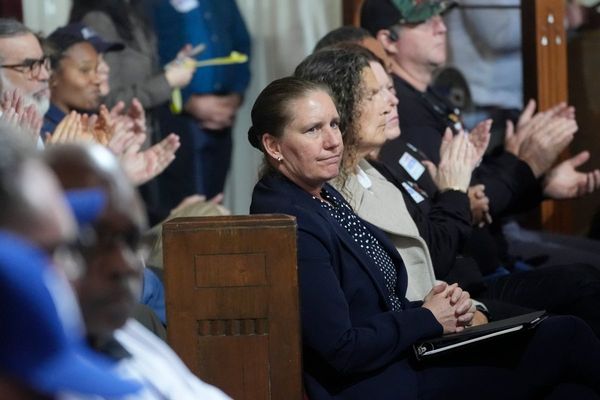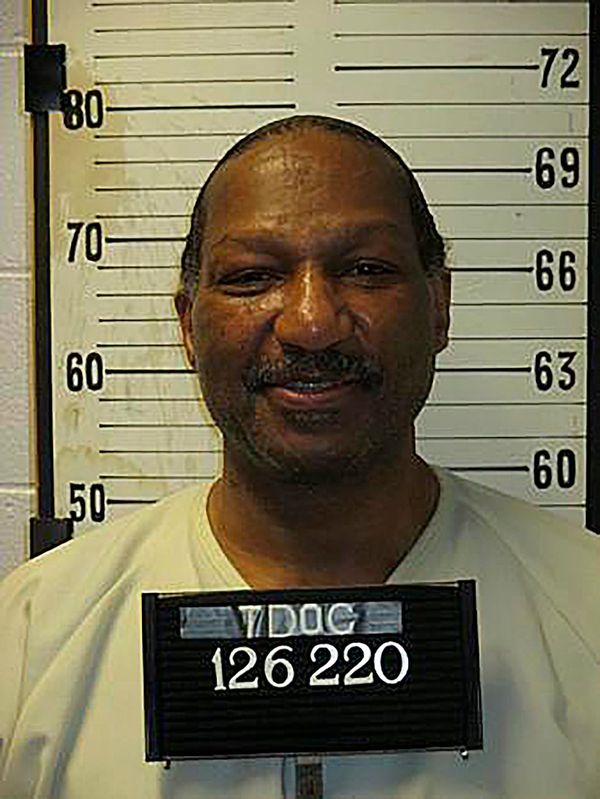
What a year! We’re as tired as you dear reader, but using our last gasp of energy to list some of the people who might be responsible for that beaten-down feeling 2024 has left us with. Direct your disappointment! Vote now in Crikey’s prestigious Arsehat of the Year award and remember you can add your own nomination if none of these options float your boat.
Anthony Albanese
Though they regularly feature, it’s not a given that the prime minister gets nominated for this award. We take into account that it’s a thankless bastard of a job and that a certain amount of failure and farce is built into the gig, particularly for a Labor leader dealing with a broadly unfavourable media landscape. But dear lord, Albanese has had a shocker.
A term that began with some genuine hope has developed into a litany of disappointments; gambling advertising reform watered down and then shelved, the obvious continued hold of fossil fuels on environmental policy, the stitching up of the crossbench via donation “reform”, the increasingly discredited National Anti-Corruption Commission, and the electorally popular but structurally unsound social media ban for under 16s.
Having returned Labor to power after nearly a decade of Coalition rule, Albanese has allowed an opposition decimated of most of its talent in 2022 and led by the hitherto unelectable Peter Dutton to chip away sufficiently that a single term, or a fall into minority government, seem genuine possibilities in 2025.
Paul Fletcher
In some ways, this is an absurd nomination for what political editor Bernard Keane called the political equivalent of “dark matter” — “Left alone long enough in any room, Fletcher will expand the dead space within it until any other living creatures will find themselves so separated by a vacuum that communication becomes impossible”. Accusing the shadow minister for whatever it is he does of wounding the public discourse in any meaningful way is like accusing a shadow of stealing your car.
But Fletcher gets in for using his one interesting statement to complain about the possibility of democracy in his electorate via a threat from teal independent Nicolette Boele. The casting of a threat to his barely utilised power as some grand left-wing conspiracy stands in as a neat symbol of the stroppy entitlement of the major parties.
Paul Brereton
What could sum up the experience of politics in 2024 better than the slow deflating of expectations around the National Anti-Corruption Commission (NACC) — the long-needed federal anti-corruption body has turned out to be almost less than nothing. But even those who think it can be salvaged, following its profoundly baffling and since-reconsidered call to not investigate the robodebt fiasco, don’t think head Paul Brereton can continue in his role.
Brereton’s remarkable, self-pitying speech in November, where he seemed to dismiss the very purpose of his organisation (to hold people account for corruption) as “a sacrifice to the gods if you like, but that’s about all there is to it”, was the peak of his non-achievement.
Tanya Plibersek
It seems cruel to include Plibersek, someone subject to a “for the ages” stitch up at the hands of Anthony Albanese, but, as Shakespeare so often said, some people are born to arsehattery, others have arsehattery thrust upon them.
In the toxic but vital environmental portfolio, Plibersek appears on the one hand to have been thwarted and undermined at every turn, and on the other, to have locked in Australia’s voracious fossil fuel consumption well into the future. As a result, yet another opportunity to make serious or even basic progress on the environment in Australia has been swallowed by the rising tide.
Brad Banducci
What a year it was for former Woolworths CEO Brad Banducci. His performance on Four Corners was a PR disaster for the ages — insisting his shot at former ACCC chair Rod Sims as “retired” turn into an on-air argument about what “on the record” means, before he stormed out of the interview before being coaxed back. And of course, this comes after his time as the head of a supermarket chain that has long used its gigantic chunk of the Australian market to squeeze its competitors, bully suppliers and rake in surging profits during a cost of living crisis.
Gina Rinehart
We realised with a start that, among the many gongs Australia’s richest person routinely picks up, in recent years we’d failed to allow her to win this most prestigious title. When one thinks about the routine, ambient-noise-level malign influence she has on Australian policy, this is dreadfully unfair.
After all, anyone else who used their platform to advocate for the shutting down of ABC TV, not to mention demand the government “cut out expenditure on the Environmental Defenders Office, [and] sell the pot plants and artefacts from all the departments and agencies offices (let them bring in their own)” so they could have a tax cut (as Rinehart did at this year’s National Mining Day event) could expect a nod. Then there was her magnificent spat with artist Vincent Namatjira and the National Gallery — demanding the removal of a less-than-flattering portrait and achieving nothing more than directing thousands more eyeballs its way. We won’t take her for granted again.
Chris Ellison
In a year lousy with corporate tomfoolery, West Australian mining magnate Chris Ellison stood out (and stood down). After allegations of tax evasion, Ellison stood down from Mineral Resources, a company he’d founded 20 years earlier, and was ordered by the board to pay $8.8 million in financial penalties, missing out on almost $10 million in planned executive remuneration in the process.
It just added to the sense of swaggering contempt that these revelations came only weeks after Ellison had demanded his business keep workers “captive all day long. I don’t want them leaving the building … I don’t want them walking down the road for a cup of coffee. We kind of figured out a few years ago how much that cost”.
The Spotlight team
Where does one begin? Thanks to the testimony of Taylor Auerbach, as well as over 1,000 text messages and emails made public during the long, ugly saga of court cases surrounding Bruce Lehrmann, Australia got a keen and disquieting insight into the media workings in this country.
Surely nothing could illustrate the grubby use of its power better than the background of how Seven’s Spotlight program secured its Walkley winning (and then Walkley losing) interview with Lehrmann, involving, at its nadir, allegations of thousands of dollars spent on illicit drugs and sex workers in securing its “talent”.







